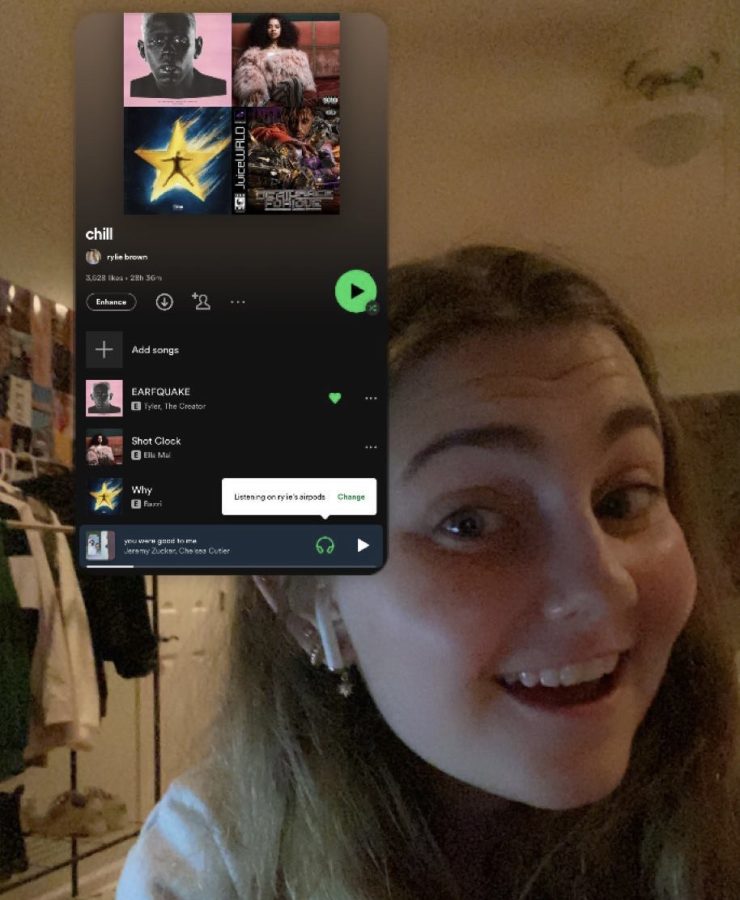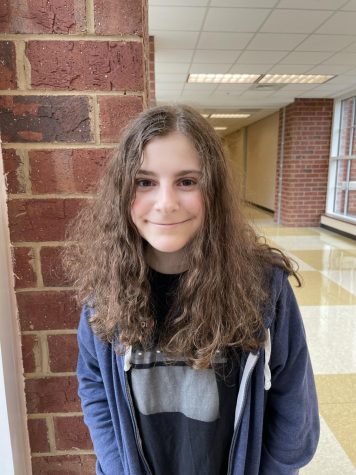Why So Blue?: The Connection Between Emotions and Music
Brown and her “chill” Spotify playlist.
March 9, 2022
At the crack of dawn, music is on. As teeth are brushed and backpacks are stuffed, a vocalist is crooning in the background. As buses are boarded, guitars strum and riff. All the while, students have flurries of emotions spinning through their minds.
According to a study on the correspondence between music and loneliness, music has the power to act as a vehicle for feelings that may not be expressible by other means.
Music and emotions go together like peanut butter and jelly. Where there is music, there are feelings.
“It gives comfort,” said freshman Eliza Taylor. When riding in the car and preparing for bed, she said Taylor Swift is playing on repeat. When songs are playing, the story behind those songs plays in Taylor’s mind like a picture show.
When she is feeling down, she listens to “Hiding in Your Hands” by Mallory Bechtel from the “Dear Evan Hansen” soundtrack and “Our Song” by Taylor Swift to get back into a more upbeat mood.
According to Psychology Today, music is a powerful aid in identity development in young people. It can help adolescents resonate with their emotions.
Sophomore Riley Brown is “constantly listening to music,” she said, and one of her favorite bands is The Fray, and it’s all because of her family.
“My parents would listen to [The Fray] when I was growing up,” said Brown. “[Their music makes] me feel happy and more at home and makes me remember when I used to listen to [them] when I was a kid.”
In a quiet environment, Brown will crank up the tunes.
“[Silence] makes me think too much, she said, “and music helps stop that.”
Sophomore Drew Ghent’s favorite song is “God Must Hate Me” by Catie Turner because of its relatability.
“[It’s] just having that feeling of knowing someone else has kind of gone through what you’re feeling, and you can connect with them on a level that’s hard to connect to with people in person sometimes,” Ghent said. “I think it really helps provide some sort of comfort.”
Like Brown, Ghent will also turn the music up when the silence becomes deafening.
“Silence is just too monotonous and sometimes makes me feel a bit anxious,” he said. “I think having music fill that silence is really comforting and gives my brain one less thing to have to worry about or fill in with thoughts.”
According to these students, music is the key to expressing emotions, as well as curing the more negative ones. Whether they are feeling mad, sad or glad, there is always a beat to relate to.
“[Music] is like a universal language,” Taylor said. “Music is something everyone can understand and listen to, and no matter what language you speak, no matter what culture you’re in. Music is something everyone can relate to and enjoy.”


Jen • Mar 11, 2022 at 8:11 pm
#truth. I have playlists for every mood and activity!